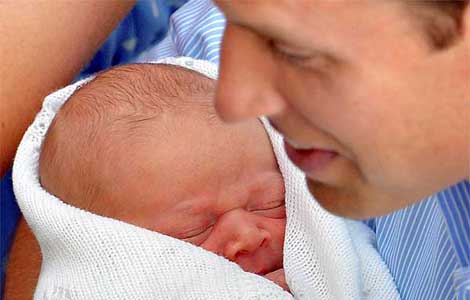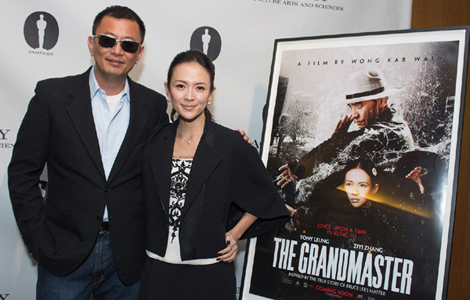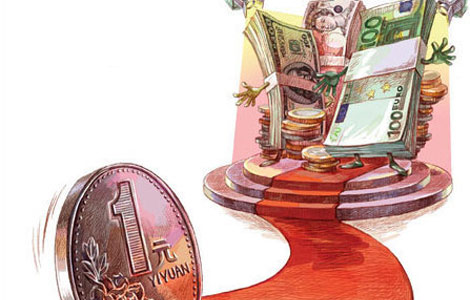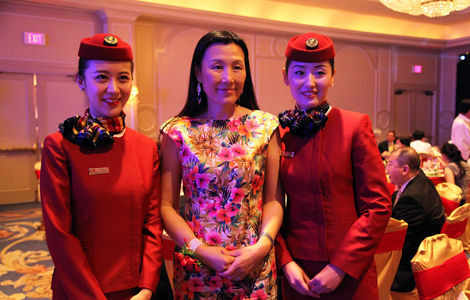Giving students room to breathe
Updated: 2013-07-25 07:20
By Wang Hongyi in Shanghai (China Daily)
|
||||||||
The Shanghai Municipal Education Commission announced earlier this year that all primary schools must adopt a "zero start" approach to the education of first-grade students and teaching must not run ahead of the curriculum.
The education commission said English and Chinese should be taught from a "zero start" beginning in the first grade. In addition, the 100-point grading system which is used to mark tests for first- and second-grade students will replaced by new ratings such as "good", "fair", "pass" and "fail."
The move is aimed at easing the academic burden on younger children and ensuring their healthy development.
The new system is currently being assessed in the Huangpu and Jinshan districts of Shanghai and is expected to be in use citywide by the autumn semester.
The city's education authorities have long stressed the need for "a happy education". As early as 2006, it stated that preschool training in kindergartens should cease, leaving children free to play and develop their social, as opposed to academic, skills.
In 2011, Shanghai unveiled a new system for assessing academic performance. It laid the primary emphasis on the child's general development and well-being, rather than simply focusing on test scores. The system was described by the authorities as a "green assessment index", because it was aimed at providing students with a healthy and relaxed study environment.
The comprehensive assessment system featured 10 criteria, including academic performance, student workloads, relations between teachers and students, teaching methods and student morale.
Under this system, the focus was expected to be widened and include a variety of factors, rather than rely simply on exam results, a move that was intended to improve the students' all round abilities.
But it seems to have had little effect and parents were among the first to object.
"It's not unusual to hear the sentence, 'Don't let your child lose on the starting line'. But when the other children are working hard to compete, can you be happy if yours isn't?" asked Liu Yan, the mother of a young child.
"There is no time for children to be happy. All the pressure comes from uncertainty about the future. Only diligent study, good grades and good schools can ensure an offer from a prestigious university after the gaokao, the national college entrance exam. All this adds up to a good job and decent pay," she said.
Yang Xiong, director of the Institute for Teenage Studies at the Shanghai Academy of Social Sciences, who has conducted research into teenagers' growth and education for many years, said, "Students are supposed to have a happy childhood, but the crude reality is that all the focus is on studying, which is not good for their growth. The authorities and parents are responsible for that."
"Over recent years, the education department has released statements and notices aimed at relieving the pressures on students. But they are just paper and are difficult to implement," he said. "In this regard, it's important for the authorities to establish a comprehensive supervision system to ensure the implementation of these edicts."
For schoolteacher Li Ying, the bottom line is that the child's happiness should always be the first priority. "Parents should help to amend the concept of education. In their family lives they should help to establish a good environment for the children's growth and not place too many burdens on their shoulders," she said.
wanghongyi@chinadaily.com.cn
(China Daily USA 07/25/2013 page8)

 Death toll in Spain train crash rises to 56
Death toll in Spain train crash rises to 56
 Royal baby named George Alexander Louis
Royal baby named George Alexander Louis
 'The Grandmaster' takes center stage
'The Grandmaster' takes center stage
 Fewer Chinese consumers picking Apple's iPhone
Fewer Chinese consumers picking Apple's iPhone
 Yuan: Financial capitals vying for top spot
Yuan: Financial capitals vying for top spot
 Little princes and princesses
Little princes and princesses
 Obama lauds Louisville in White House visit
Obama lauds Louisville in White House visit
 PLA special forces hold military contest
PLA special forces hold military contest
Most Viewed
Editor's Picks

|

|

|

|

|

|
Today's Top News
Bo indicted for bribery, corruption and power abuse
Snowden's hopes of leaving airport dashed
US extends review of Shuanghui, Smithfield merger
'Few hundred' at Manila anti-China rally
Obama, Congress both losing public support
Abe seeking to 'contain' Beijing
Li points way for railways reform
VP visits Pyongyang for 60th truce anniversary
US Weekly

|

|






